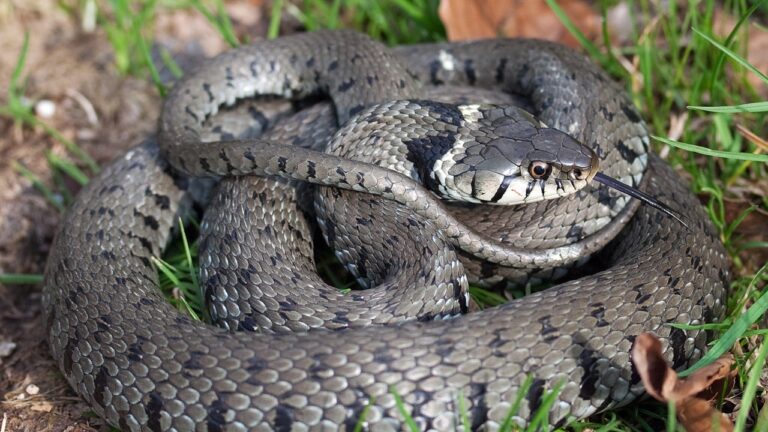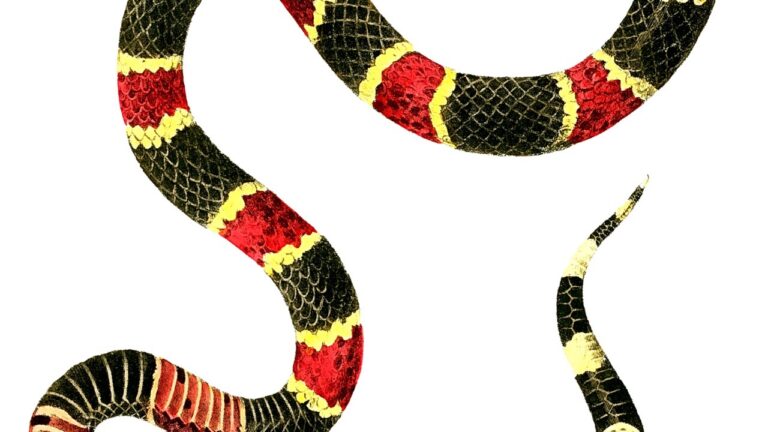Understanding Snake Mouth Rot: A Guide to Specialized Health Conditions
Overview of snake mouth rot
Snakes are fascinating creatures that captivate the interest of many reptile enthusiasts. However, like any living being, they are susceptible to various health conditions that can affect their well-being. One such condition is snake mouth rot, also known as infectious stomatitis. This ailment can cause discomfort and pain for our slithering companions if left untreated. In this comprehensive guide, we will delve into the intricacies of snake mouth rot, including its causes, symptoms, diagnosis, treatment, and prevention.
Snake mouth rot is a specialized health condition that primarily affects the oral cavity of snakes. It is characterized by inflammation and infection of the mouth, gums, and surrounding tissues. While it may sound alarming, it is crucial for reptile owners and enthusiasts to understand that snake mouth rot is a treatable condition with proper care and veterinary intervention.
In this article, we will explore the various aspects of snake mouth rot, shedding light on its definition, causes, symptoms, diagnosis, treatment, prevention, and common misconceptions. By delving into these topics, we aim to equip snake owners and enthusiasts with the knowledge they need to identify and address this condition promptly.
It is important to note that snake mouth rot is not the only health condition that can affect our scaly friends. Other ailments such as snake scale rot, snake mites infestation, snake inclusion body disease, snake respiratory infection, snake septicemia, snake prolapse, snake shedding problems, snake kidney disease, and snake neurological disorders are also prevalent. However, in this guide, we will focus specifically on snake mouth rot and its intricacies.
So, let us embark on this informative journey to unravel the mysteries of snake mouth rot. By the end of this guide, you will have a comprehensive understanding of this condition and the necessary tools to provide the best care for your beloved serpents. Stay tuned for an in-depth exploration of snake mouth rot, from its definition and causes to its diagnosis, treatment, and prevention. Together, we will navigate the intricate world of reptile health and ensure the well-being of our slithering companions.
What is Snake Mouth Rot?
Definition and Causes
When it comes to the health of our slithery friends, it’s important to be informed about the various ailments that can affect them. One such condition is snake mouth rot, also known as infectious stomatitis. This is a specialized health condition that primarily affects snakes, causing inflammation and infection in their oral cavity.
Snake mouth rot is caused by bacterial, viral, or fungal infections that can enter the snake’s mouth through various means. These pathogens can be present in their environment, such as in contaminated water sources, dirty substrate, or even through contact with infected prey. Additionally, poor husbandry practices, such as inadequate temperature and humidity levels, can weaken a snake’s immune system, making them more susceptible to developing mouth rot.
Symptoms and Signs
Detecting snake mouth rot early on is crucial for the well-being of your snake. There are several symptoms and signs to watch out for that may indicate the presence of this condition. First and foremost, pay attention to any changes in your snake’s behavior. If you notice a lack of appetite, lethargy, or a reluctance to eat, it could be a red flag. Other common symptoms include swelling and redness of the gums, excessive saliva, and pus or discharge in the mouth. In some cases, you may even observe ulcers or sores on the snake’s gums or tongue.
It’s important to note that snake mouth rot can be a primary condition or a secondary infection resulting from other underlying health issues. For example, snakes with compromised immune systems due to snake scale rot, respiratory infections, or septicemia are at a higher risk of developing mouth rot. Therefore, it’s crucial to address these underlying health issues promptly and comprehensively to prevent the onset of mouth rot.
If you suspect that your snake may be suffering from mouth rot, it is recommended to seek veterinary assistance immediately. A veterinarian experienced in reptile care will be able to perform a thorough examination to diagnose the condition accurately and recommend appropriate treatment options. Remember, early detection and intervention are key to successfully managing snake mouth rot and ensuring the well-being of your scaly companion.
To learn more about other specialized health conditions that can affect snakes, such as snake mites, shedding problems, or even snake neurological disorders, feel free to explore the informative articles on our website SerpentSuppers.com. We are dedicated to providing valuable resources to help you take better care of your snake and promote their overall health and happiness.
Diagnosis and Treatment
When it comes to addressing the health of our slithery friends, a proper diagnosis is crucial for effective treatment. In the case of snake mouth rot, a veterinary examination is the first step towards identifying the condition and devising an appropriate plan of action.
Veterinary Examination
A skilled and experienced reptile veterinarian is best equipped to diagnose snake mouth rot. During the examination, the veterinarian will carefully inspect the snake’s mouth, looking for telltale signs of infection or inflammation. This may include swollen gums, presence of pus, and ulcerated lesions on the oral mucosa. In some cases, a foul odor emanating from the mouth may also be indicative of the condition.
In addition to the physical examination, the veterinarian may also recommend other diagnostic tests to confirm the diagnosis or rule out other potential health issues. These tests may include a bacterial culture to identify the specific bacteria responsible for the infection, as well as blood work to assess the overall health of the snake.
Medications and Treatments
Once a diagnosis of snake mouth rot has been confirmed, the veterinarian will prescribe an appropriate course of treatment. This typically involves a combination of medications and supportive care to combat the infection and promote healing.
Antibiotics play a vital role in treating snake mouth rot, as they help eliminate the underlying bacterial infection. The specific antibiotic prescribed will depend on the severity of the infection and the results of any bacterial cultures performed. It is important to follow the veterinarian’s instructions regarding dosage and duration of antibiotic treatment to ensure effective eradication of the infection.
Topical treatments such as antiseptic mouth rinses or gels may also be recommended to help combat the infection and soothe any discomfort. These can be applied directly to the affected areas of the snake’s mouth.
In addition to medication, supportive care is crucial for the snake’s recovery. This may include providing a clean and sterile environment to minimize the risk of reinfection, as well as ensuring proper hydration and nutrition. Adequate hydration can be achieved through regular misting or soaking, while a balanced diet rich in essential nutrients will help boost the snake’s immune system and aid in the healing process.
It is important to note that snake mouth rot can be a stubborn condition to treat, and the road to recovery may require patience and diligent care. Regular follow-up examinations with the veterinarian will help monitor the progress of the treatment and make any necessary adjustments.
Remember, snake mouth rot is just one of the many specialized health conditions that can affect our scaly companions. If you’re interested in learning more about other reptile health issues, such as snake scale rot or snake respiratory infection, be sure to check out our informative articles.
In the next section, we will explore some key strategies for preventing and managing snake mouth rot to ensure the well-being of our slithering friends. Stay tuned!
Prevention and Management
When it comes to the health and well-being of your beloved snake, prevention is key. By implementing proper husbandry practices, regular cleaning and disinfection, and providing a balanced diet and nutrition, you can significantly reduce the risk of snake mouth rot and other health conditions.
Proper Husbandry Practices
Maintaining a suitable living environment for your snake is crucial in preventing the onset of snake mouth rot. Ensure that the snake’s enclosure is spacious enough to allow for natural movement and exercise. It is also important to provide appropriate substrate and hiding spots to create a stress-free environment for your snake.
Proper temperature and humidity are essential for the overall health of your snake. Research the specific requirements of your snake species and create a habitat that closely mimics its natural environment. Monitoring and regulating the temperature and humidity levels in the enclosure will help prevent the growth of bacteria and fungi that can lead to mouth rot.
Regular Cleaning and Disinfection
Regular cleaning and disinfection of your snake’s enclosure are essential in preventing the buildup of harmful bacteria and pathogens. Remove any uneaten food, feces, or shed skin promptly to maintain a clean environment. Use a reptile-safe disinfectant to clean the enclosure thoroughly, ensuring that all surfaces are properly sanitized.
Avoid using harsh chemicals or cleaning agents that may be toxic to your snake. Instead, opt for reptile-specific disinfectants that are designed to effectively eliminate harmful bacteria while being safe for your snake’s health.
Balanced Diet and Nutrition
A well-balanced diet is crucial for maintaining the overall health and immune system of your snake. Providing a diet that meets the specific nutritional requirements of your snake species will help prevent deficiencies and strengthen its resistance to infections, including snake mouth rot.
Consult a reptile veterinarian or a knowledgeable breeder to determine the appropriate diet for your snake. In general, snakes are carnivores and require a diet consisting of appropriately sized prey items. Ensure that the prey items are of high quality and free from any potential pathogens.
Supplementing your snake’s diet with vitamins and minerals may also help boost its immune system. However, always consult with a professional to ensure that you are providing the correct supplements in the right quantities.
By following these preventative measures, you can significantly reduce the likelihood of your snake developing mouth rot. Remember, a healthy and well-cared-for snake is less susceptible to a wide range of health conditions. Stay proactive in your snake’s care and always seek professional veterinary advice if you notice any signs of illness or discomfort.
For more information on other health conditions that may affect your snake, check out our articles on snake scale rot, snake mites treatment, or snake inclusion body disease.
Common Misconceptions about Snake Mouth Rot
Snake mouth rot is a concerning health condition that can affect our scaly friends. However, there are a few common misconceptions surrounding this ailment that need to be debunked. Let’s take a closer look at these myths and separate fact from fiction.
Myth #1: It’s Contagious to Humans
One prevailing misconception about snake mouth rot is that it can be transmitted from snakes to humans. This is simply not true. Snake mouth rot, also known as infectious stomatitis, is caused by bacterial or fungal infections in a snake’s mouth, and it primarily affects reptiles. While it is important to handle any pet with care and practice good hygiene, there is no need to worry about contracting mouth rot from your snake.
Myth #2: It Can Be Cured with Home Remedies
Another common misconception surrounding snake mouth rot is that it can be easily cured with home remedies. However, this is not recommended. Snake mouth rot is a serious condition that requires proper veterinary care. While there are some mild cases that may improve with diligent oral hygiene and regular cleanings, it is crucial to consult a reptile veterinarian for an accurate diagnosis and appropriate treatment.
Home remedies, such as herbal treatments or DIY concoctions, may not effectively address the underlying infection and can potentially worsen the condition. Additionally, certain medications and treatments prescribed by veterinarians are specifically formulated to combat snake mouth rot, ensuring the best chance of recovery for your snake.
Remember, when it comes to the health and well-being of our reptilian companions, it is always best to consult a professional. A qualified veterinarian can provide the necessary expertise and guidance to effectively treat and manage snake mouth rot.
In conclusion, understanding the truth behind these common misconceptions surrounding snake mouth rot is essential for responsible snake ownership. It is important to educate ourselves and rely on accurate information when it comes to the health of our scaly companions. By dispelling these myths, we can ensure the well-being of our snakes and provide them with the care they deserve.
For more information on snake health conditions, you may be interested in reading about snake scale rot, snake mites treatment, or snake inclusion body disease.
Conclusion
In conclusion, understanding snake mouth rot is crucial for any snake owner or enthusiast. By familiarizing oneself with the definition, causes, symptoms, diagnosis, treatment, prevention, and common misconceptions surrounding this specialized health condition, one can ensure the well-being and longevity of their scaly companions.
Snake mouth rot, scientifically known as infectious stomatitis, is a serious condition that affects the oral cavity of snakes. It is typically caused by a bacterial or fungal infection, often resulting from poor husbandry practices or compromised immune systems. By recognizing the early symptoms and signs such as excessive drooling, swelling, and difficulty eating, snake owners can seek timely veterinary examination and appropriate treatment.
Diagnosis and treatment of snake mouth rot require the expertise of a qualified veterinarian. Through a thorough examination, including physical inspection and laboratory tests, the underlying cause can be identified, and an effective treatment plan can be devised. This may involve the use of medications, such as antibiotics or antifungals, as well as supportive care to promote healing and alleviate discomfort.
Prevention and management of snake mouth rot are essential to minimize the risk of infection. Proper husbandry practices, including maintaining clean and well-sanitized enclosures, providing a balanced diet, and monitoring the overall health of the snake, can significantly reduce the likelihood of this condition. Regular cleaning and disinfection of the snake’s habitat, along with attention to diet and nutrition, are key factors in maintaining optimal oral health.
It is important to address common misconceptions surrounding snake mouth rot. Firstly, it is crucial to note that snake mouth rot is not contagious to humans. While it can spread among snakes, it does not pose a direct risk to human health. Secondly, snake mouth rot cannot be effectively treated with home remedies alone. Professional veterinary care is essential to properly diagnose and treat this condition, ensuring the best possible outcome for the snake.
In conclusion, snake mouth rot is a specialized health condition that requires careful attention and proactive measures. By understanding its causes, recognizing the symptoms, and seeking appropriate veterinary care, snake owners can effectively manage and prevent this condition. Remember, a healthy snake with a well-maintained oral cavity is a happy snake. So, let’s prioritize the well-being of our scaly companions and provide them with the care they deserve.
For more information on other common health conditions that affect snakes, such as snake scale rot, snake mites, or snake respiratory infections, feel free to explore our comprehensive resources on SerpentSuppers.com.






